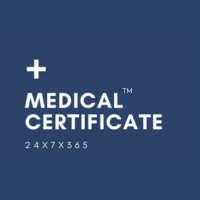Medical certificates are critical documents used to verify an individual’s health condition for purposes like sick leave, workplace accommodations, or regulatory compliance. While these documents are typically issued by licensed medical professionals, the rise of fake medical certificates has become a growing concern for employers.
Fake certificates undermine trust in workplace systems and create a host of legal and ethical issues. This blog explores how companies identify fraudulent medical documents, the consequences for employees caught using them, and the ethical way to obtain a genuine certificate through legitimate channels.
Why Medical Certificates Are Important in the Workplace
Medical certificates serve as proof of an employee’s inability to work due to health issues. They help employers manage workplace attendance policies, plan resources, and ensure fairness.
Key Roles of Medical Certificates in the Workplace
- Validating Sick Leave: Ensures leave taken for health reasons is genuine.
- Supporting Workplace Accommodations: Allows for task adjustments or workload reductions based on health conditions.
- Legal Compliance: Meets regulatory requirements in industries like transportation or construction.
The misuse of medical certificates, however, threatens the integrity of these systems.
Why Some Employees Resort to Fake Medical Certificates
The reasons for faking a medical certificate often stem from a combination of pressure, convenience, and misinformation.
1. Avoiding Work Without Legitimate Grounds
Employees may fake medical certificates to justify unapproved personal leave, extend vacations, or avoid workplace deadlines.
2. Skipping Regulatory Processes
In industries requiring fitness certifications (e.g., driving licenses or hazardous work permits), employees may submit fake documents to bypass rigorous health checks.
3. Perceived Difficulty in Obtaining a Legitimate Certificate
Some believe the process of securing a genuine certificate is time-consuming or costly, leading them to take shortcuts.
How Companies Detect Fake Medical Certificates
Employers are increasingly vigilant when it comes to verifying medical certificates, employing both manual and technological methods to spot fraud.
1. Verification of Doctor Credentials
Employers may cross-check the medical practitioner’s details provided on the certificate, including:
- Registration Number: Verified through medical council databases.
- Contact Information: Directly contacting the issuing clinic or doctor.
2. Examination of Document Details
HR teams are trained to identify red flags in medical certificates, such as:
- Missing or inconsistent information.
- Generic or vague diagnosis.
- Poor-quality logos or stamps that suggest forgery.
3. Cross-Referencing Employee Patterns
Employers often review employee attendance records for patterns like:
- Frequent sick leave around weekends or holidays.
- Certificates submitted repeatedly from the same suspicious source
4. Use of Technology
Many organizations use software tools to authenticate medical documents by checking:
- Digital signatures and watermarks.
- Metadata embedded in scanned certificates.
5. Third-Party Verification Services
Some companies employ external agencies to verify the authenticity of medical certificates, particularly in high-risk industries.
Consequences of Using a Fake Medical Certificate
Submitting a fake medical certificate may seem like a small infraction, but the repercussions can be severe and long-lasting.
1. Disciplinary Action at Work
Most companies have a zero-tolerance policy for dishonest practices, leading to:
- Suspension or termination of employment.
- Damage to professional relationships and trust within the organization.
2. Legal Penalties
Falsifying medical documents is considered fraud and forgery in many jurisdictions, punishable by:
- Heavy fines.
- Imprisonment for severe cases.
- A permanent criminal record that affects future employment.
3. Social and Professional Stigma
Being caught using a fake certificate can tarnish your reputation, affecting:
- Career growth opportunities.
- Relationships with colleagues and peers.
4. Impact on Workplace Policies
The misuse of medical certificates can lead employers to implement stricter policies, making the process more cumbersome for all employees.
The Ethical Alternative: Obtaining a Legitimate Medical Certificate
Instead of risking everything with a fake certificate, opt for a legitimate one. With advancements in telemedicine, obtaining a genuine medical certificate has become easier than ever.
Step-by-Step Guide to Getting a Medical Certificate
Step 1: Select a Trusted Online Platform
Choose a licensed telemedicine service like MedicalCertificate.in.
Step 2: Provide Accurate Information
Fill out an online form detailing:
- Your symptoms and medical history.
- The reason for needing the certificate.
Step 3: Schedule a Virtual Consultation
Connect with a licensed doctor via video or phone call. During the session:
- Clearly explain your condition.
- Provide supporting documents if required (e.g., previous prescriptions or test results).
Step 4: Receive a Digital Certificate
If deemed necessary, the doctor will issue a digitally signed certificate with:
- Diagnosis and treatment plan.
- Recommended leave duration or work adjustments.
Step 5: Submit the Certificate
Share the certificate with your employer or relevant authority.
Benefits of Using a Genuine Medical Certificate
A legitimate medical certificate not only protects your integrity but also fosters trust and accountability in the workplace.
1. Legal and Professional Security
Avoid the risks of fraud charges or employment termination.
2. Employer Trust
Using a genuine certificate demonstrates honesty and responsibility, strengthening professional relationships.
3. Convenience and Accessibility
Online platforms make it easy to obtain a valid certificate without the need for in-person visits.
4. Ethical Peace of Mind
Choosing authenticity ensures compliance with ethical and professional standards.
Conclusion
Using a fake medical certificate might seem like a convenient shortcut, but the risks far outweigh the benefits. From damaging your career to facing legal repercussions, the consequences can be severe. On the other hand, obtaining a genuine certificate is straightforward, ethical, and beneficial for maintaining trust and accountability.
Online platforms like MedicalCertificate.in simplify the process, allowing you to obtain legitimate documentation quickly and securely. Remember, authenticity and transparency are the foundations of a successful professional life—don’t let a poor decision jeopardize your future.

